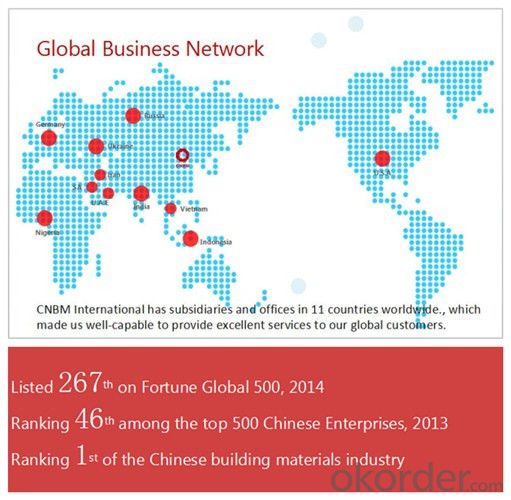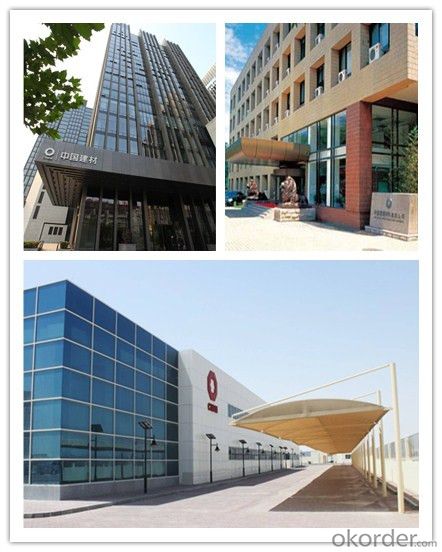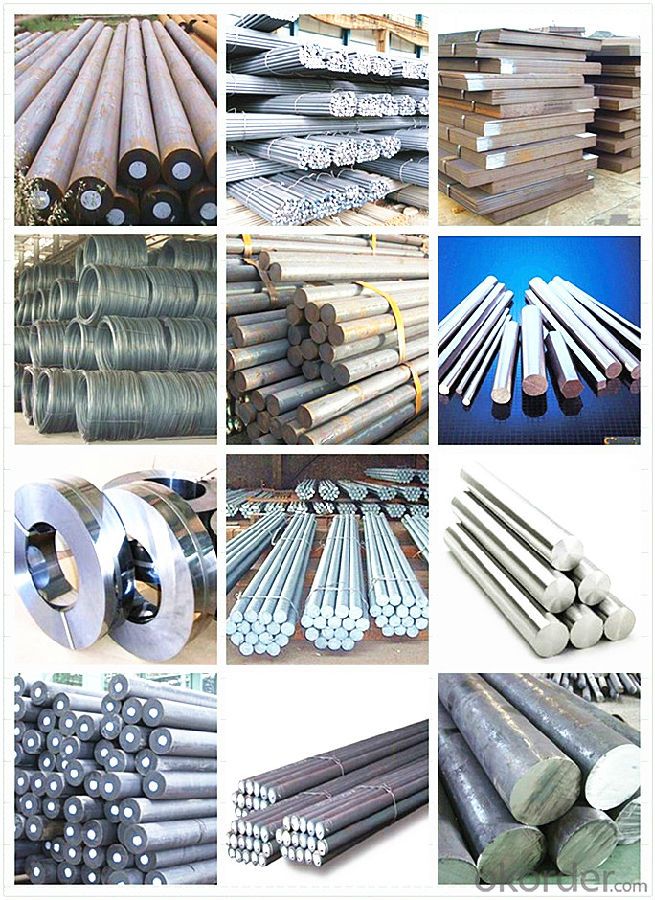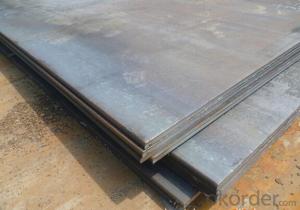A36/A283(A/B/C/D) 2mm 6mm 10mm 30mm Thickness Steel Plate
- Loading Port:
- Tianjin
- Payment Terms:
- TT OR LC
- Min Order Qty:
- 3 m.t.
- Supply Capability:
- 100000 m.t./month
OKorder Service Pledge
OKorder Financial Service
You Might Also Like
Item specifice
A36/A283(A/B/C/D) 2mm 6mm 10mm 30mm Thickness Steel Plate
Detailed Information of A36/A283(A/B/C/D) 2mm 6mm 10mm 30mm Thickness Steel Plate
| C | Si | P | S | yield Strength MAp | Tensile strength MAp | Elongation % | ||
| A36 | 0.24 | 0.4 | 0.045 | 0.03 | 250 | 400-520 | 26 | |
| C | Si | Mn | P | S | Cu | |||
| A283 | ≤0.27 | 0.15-0.4 | ≤0.9 | ≤0.035 | ≤0.04 | ≥0.2 | ||
| Thickness: | 6mm, 8mm, 12mm, 16mm, 20mm, 25mm, 30mm, 50mm, 80mm, 100mm, 150mm, 200mm | |||||||
| Width: | 1500mm, 1800mm, 2000mm, 2200mm, 2500mm | |||||||
| Length: | 6000mm, 8000m, can cut to width and length | |||||||
| Packing Details; | according to customer‘s require or export’s standard | |||||||
| Delivery time; | 7 days for stock sizes, 20-25 days for new production sizes | |||||||
| Port: | Tianjin China | |||||||
Related Products Overviews of A36/A283(A/B/C/D) 2mm 6mm 10mm 30mm Thickness Steel Plate
Product Name | Typical Grades | Diameter(mm) | Standard Adopted |
Carbon Steel | 20 (1020/S20C/C22) |
Ø16-Ø300 |
GB/SAE/ JIS/DIN |
40 (1040/S40C/C40) | |||
45 (1045/S45C/C45) | |||
Bearing Steel | GCr9 (51100/SUJ1) |
Ø12-Ø250 | |
GCr15 (52100/SUJ2/100Gr6) | |||
GCr9SiMn (A485-Gr.1/SUJ3) | |||
Cr-Mo Steel | 20Cr (5120/SCr420H/20Cr4) |
Ø12-Ø250 | |
40Cr (5140/SCr440/41Cr4) | |||
42CrMo(4140/SCM440/42CrMo4) | |||
Gear Steel | 20CrNiMo |
Ø16-Ø600 | |
20CrMn(5115/SMnC420/20MnCr5) | |||
20CrNiMo(8620/SNCM220/20CrMiMo2) |
Related Products Application of A36/A283(A/B/C/D) 2mm 6mm 10mm 30mm Thickness Steel Plate
Carbon Steel | l Mold bottom l Plastic mold l Construction machinery parts l Automobile parts l Security grills l Screens l Construction |
Bearing Steel | l Aerospace l Navigation l Nuclear energy l Chemical industry l Electronic information l Petrochemical l Instrument and meter l Transportation |
Cr-Mo Steel | l Mechanism & Fasteners gear l Stressed components for vehicles l Engines and machines l Parts of larger cross-section |
Gear Steel | l All kinds of gears l Statically and dynamically stressed component for vehicles l Engines and machine l Larger cross-section parts l Crankshafts |
Company Introduction of A36/A283(A/B/C/D) 2mm 6mm 10mm 30mm Thickness Steel Plate
CNBM International Corporation is the most import and export platform of CNBM group(China National Building Material Group Corporation) ,which is a state-owned enterprise, ranked in 270th of Fortune Global 500 in 2015.
With its advantages, CNBM International are mainly concentrate on Cement, Glass, Iron and Steel, Ceramics industries and devotes herself for supplying high quality series of refractories as well as technical consultancies and logistics solution.


After-sale service | l CNBM provides the services and support you need for every step of our cooperation. We’re the business partners you can trust; you can relax and get on with doing business. l For any problem, please kindly contact us at any your convenient time, we’ll reply you in our first priority within 24 hours
|
Advantages
| l Industry experience over 20 years. l Shipment of goods -More than 70 countries worldwide. l The most convenient transport and prompt delivery. l Competitive price with best service. l High technical production line with top quality products. l High reputation based on best quality products.
|
Packaging & Delivery of A36/A283(A/B/C/D) 2mm 6mm 10mm 30mm Thickness Steel Plate
Packaging Detail | Sea worthy packing /as per customer's packing instruction |
Delivery Detail | 15 ~ 40 days after receiving the deposit |
Products Show

FAQ:
Are you a trading company or manufacturer? | Manufacturer |
What’s the MOQ? | 3 metric ton |
What’s your delivery time? | 15-35 days after downpayment received |
Do you Accept OEM service? | Yes |
what’s your delivery terms? | FOB/CFR/CIF |
What's the Payment Terms? | 30% as deposit,70% before shipment by T/T |
Western Union acceptable for small amount. | |
L/C acceptable for large amount. | |
Scrow ,Paybal,Alipay are also ok | |
Why choose us? | Chose happens because of quality, then price, We can give you both. Additionally, we can also offer professional products inquiry, products knowledge train (for agents), smooth goods delivery, excellent customer solution proposals. |
What's your available port of Shipment? | Main Port, China |
What’s your featured services? | Our service formula: good quality+ good price+ good service=customer's trust
|
Where are your Market? | Covering more than 160 countries in the world |
- Q:What are the requirements for special steel used in high-temperature applications?
- The requirements for special steel used in high-temperature applications include excellent heat resistance, high strength at elevated temperatures, good oxidation and corrosion resistance, and the ability to retain mechanical properties under extreme heat conditions. Additionally, these steels should have sufficient creep resistance, thermal stability, and resistance to thermal fatigue.
- Q:How is special steel used in the mining supply chain?
- Special steel is used in various ways in the mining supply chain. It is commonly used to manufacture heavy machinery and equipment such as excavators, drills, crushers, and conveyor systems, which are vital for extracting and processing minerals. The high strength and durability of special steel make it suitable for withstanding the harsh conditions and heavy loads encountered in mining operations. Additionally, special steel is used for constructing pipelines, storage tanks, and other infrastructure required for transporting and storing extracted minerals.
- Q:What are the requirements for special steel used in renewable energy equipment manufacturing?
- The requirements for special steel used in renewable energy equipment manufacturing include high strength and durability, corrosion resistance, and the ability to withstand extreme temperatures and environmental conditions. Additionally, the steel should possess good weldability and formability to facilitate the manufacturing process. It is also important for the steel to have low carbon content to reduce its environmental impact and improve sustainability.
- Q:How does special steel perform in high-temperature mechanical applications?
- Special steel performs exceptionally well in high-temperature mechanical applications. Thanks to its unique composition and properties, such as high strength, excellent heat resistance, and thermal stability, special steel can withstand extreme temperatures without losing its structural integrity or mechanical properties. It exhibits minimal creep, oxidation, and deformation, ensuring reliable performance and durability in demanding high-temperature environments.
- Q:How does special steel perform in extreme temperature conditions?
- Special steel performs exceptionally well in extreme temperature conditions. It has high resistance to thermal stress, maintaining its strength and toughness even at both extremely high and low temperatures. This makes it suitable for applications in industries such as aerospace, oil and gas, and power generation, where extreme temperatures are encountered. Special steel's ability to withstand these conditions ensures optimal performance and reliability in critical environments.
- Q:What is the significance of special steel in the medical field?
- Special steel, also known as medical grade steel, plays a crucial role in the medical field due to its unique properties and significance. It is specifically designed and manufactured to meet the stringent requirements of the healthcare industry. The significance of special steel in the medical field can be understood through the following points: 1. Biocompatibility: Special steel is biocompatible, meaning it is non-toxic and does not provoke an adverse reaction when in contact with the human body. This makes it an ideal material for medical devices such as surgical instruments, implants, and orthopedic tools. 2. Corrosion resistance: Special steel is highly resistant to corrosion and rust, ensuring the longevity and durability of medical instruments. Instruments used in surgical procedures need to be repeatedly sterilized, and the corrosive nature of sterilization agents can degrade ordinary steel. Special steel, with its superior corrosion resistance, can withstand these harsh conditions, reducing the risk of contamination and maintaining the integrity of medical equipment. 3. Mechanical properties: Special steel possesses excellent mechanical properties, such as high strength, toughness, and ductility. These characteristics are essential for medical devices, as they need to withstand the stresses and strains of surgical procedures, maintain their shape, and provide reliable performance. 4. Sterilization compatibility: Special steel can withstand various sterilization methods, including steam sterilization, ethylene oxide sterilization, and gamma radiation. This ensures that medical instruments made from special steel can be effectively sterilized, preventing the transmission of infections and reducing the risk of contamination during surgeries. 5. Precision manufacturing: Special steel can be fabricated into intricate shapes and sizes, allowing the production of precise medical instruments. Its superior machinability enables the creation of fine and sharp edges, crucial for surgical tools used in delicate procedures. 6. Antibacterial properties: Some special steels, such as stainless steel, possess inherent antibacterial properties. This characteristic is particularly important in the medical field, where the prevention of infections is paramount. Instruments made from antibacterial special steel can inhibit the growth of bacteria, minimizing the risk of post-operative complications. In summary, the significance of special steel in the medical field lies in its biocompatibility, corrosion resistance, mechanical properties, sterilization compatibility, precision manufacturing, and potential antibacterial properties. These qualities make special steel an indispensable material for manufacturing medical devices, ensuring their reliability, durability, and safety for both healthcare professionals and patients.
- Q:What is the significance of carbon content in special steel?
- The carbon content in special steel is significant because it determines the steel's hardness, strength, and overall performance. Higher carbon content results in increased hardness and strength, making the steel suitable for applications requiring durability and resistance to wear and tear. On the other hand, lower carbon content enhances the steel's ductility and formability, making it more suitable for shaping and molding processes. Therefore, carbon content plays a crucial role in tailoring the properties of special steel to meet specific industrial requirements.
- Q:How does special steel contribute to the automotive sector?
- Special steel plays a significant role in the automotive sector by contributing to the manufacturing and performance of various automotive components. It offers several benefits that enhance the overall quality, durability, and safety of vehicles. Firstly, special steel is known for its exceptional strength and toughness. This makes it ideal for producing critical automotive parts such as engine components, chassis, suspension systems, and safety reinforcements. These components require high strength to withstand the stresses and strains experienced during vehicle operation, ensuring the safety of passengers. Furthermore, special steel provides excellent resistance to wear, corrosion, and high-temperature environments. This makes it suitable for manufacturing parts like gears, bearings, shafts, and exhaust systems, which are exposed to harsh conditions. The use of special steel in these components improves their lifespan, reliability, and overall performance, reducing maintenance and replacement costs for vehicle owners. Moreover, special steel enables the lightweighting of vehicles. Automakers are constantly striving to reduce the weight of vehicles to enhance fuel efficiency and reduce emissions. Special steel alloys, such as high-strength low-alloy (HSLA) steel, offer a unique combination of strength and lightweight properties, allowing manufacturers to design lighter and more fuel-efficient vehicles without compromising on safety or performance. In addition to its mechanical properties, special steel also contributes to the automotive sector through its versatility in manufacturing processes. It can be easily formed, welded, and machined, enabling complex shapes and designs for automotive parts. This flexibility enhances the design possibilities and allows for innovative solutions to meet the evolving needs of the automotive industry. Overall, special steel plays a crucial role in the automotive sector by providing strength, durability, and lightweight properties to various components. Its use in critical parts ensures the safety of vehicles and passengers, while its resistance to wear and corrosion improves the longevity and performance of automotive systems. With the constant drive for fuel efficiency and innovation in the automotive industry, special steel continues to be an essential material in shaping the future of automobiles.
- Q:What are the common challenges in forging special steel?
- Common challenges in forging special steel include achieving the desired grain structure, maintaining uniformity and consistency throughout the material, controlling the temperature during the forging process, preventing cracks and defects, and ensuring proper heat treatment for the desired mechanical properties.
- Q:What are the different methods of surface finishing for special steel?
- Special steel can be finished using various methods, each with its own advantages and the ability to meet specific aesthetic or functional needs. Some commonly utilized techniques include: 1. Electroplating: Through an electrochemical reaction, a layer of metal is deposited onto the surface of the special steel. This process enhances corrosion resistance, improves appearance, and can increase hardness or wear resistance. 2. Passivation: A chemical treatment is employed to eliminate surface contaminants and form a thin oxide layer on the special steel. This treatment enhances corrosion resistance by preventing rust or other oxidation products from forming. 3. Polishing: Utilizing abrasive materials, a mechanical process is employed to remove a thin layer of the steel surface, resulting in a smooth and glossy finish. This method is often used to enhance the appearance of special steel products or achieve a desired level of reflectivity. 4. Shot blasting: Tiny metal beads or shots are propelled at high speeds onto the surface of the special steel. This technique removes scale, rust, or other surface contaminants, resulting in a clean and textured finish. Shot blasting is commonly employed to prepare the steel for subsequent coating or painting applications. 5. Physical vapor deposition (PVD): A vacuum-based coating process is used to deposit a thin layer of material onto the special steel surface. This method offers excellent adhesion, wear resistance, and the ability to provide various colors or finishes to enhance the steel's aesthetics. 6. Powder coating: Dry powder is applied onto the special steel surface and then cured under heat to form a protective and decorative layer. This method offers excellent corrosion resistance, durability, and a wide range of color options. 7. Anodizing: An electrolytic process is employed to create a controlled oxide layer on the surface of specific special steel alloys. This process increases corrosion resistance, improves appearance, and can enhance hardness or wear resistance. These methods are just a selection of the numerous options available for surface finishing special steel. The choice of method will depend on factors such as the desired finish, functional requirements, and the specific properties of the steel being used.
1. Manufacturer Overview |
|
|---|---|
| Location | |
| Year Established | |
| Annual Output Value | |
| Main Markets | |
| Company Certifications | |
2. Manufacturer Certificates |
|
|---|---|
| a) Certification Name | |
| Range | |
| Reference | |
| Validity Period | |
3. Manufacturer Capability |
|
|---|---|
| a)Trade Capacity | |
| Nearest Port | |
| Export Percentage | |
| No.of Employees in Trade Department | |
| Language Spoken: | |
| b)Factory Information | |
| Factory Size: | |
| No. of Production Lines | |
| Contract Manufacturing | |
| Product Price Range | |
Send your message to us
A36/A283(A/B/C/D) 2mm 6mm 10mm 30mm Thickness Steel Plate
- Loading Port:
- Tianjin
- Payment Terms:
- TT OR LC
- Min Order Qty:
- 3 m.t.
- Supply Capability:
- 100000 m.t./month
OKorder Service Pledge
OKorder Financial Service
Similar products
New products
Hot products
Related keywords

































